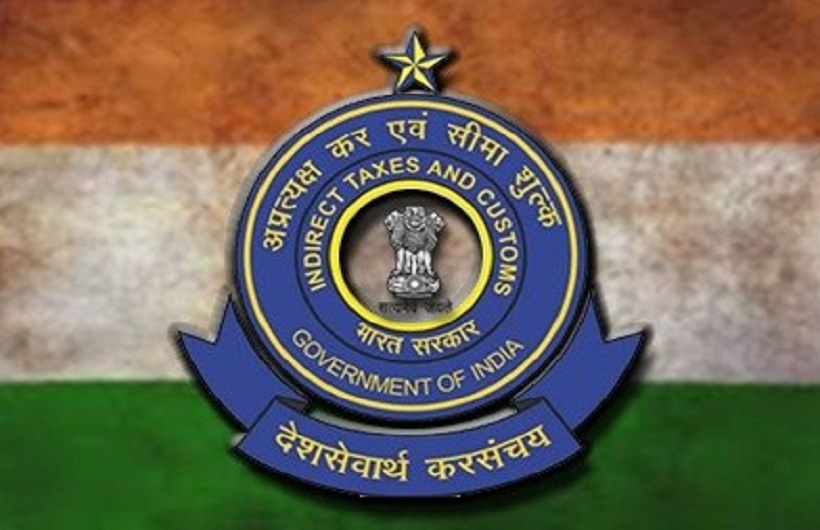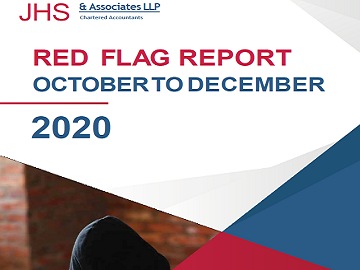Reference: Central Board of Indirect Taxes and Customs
Update:
CBIC mandates quoting of DIN in all communications from 08.11.2019:
CBIC is implementing a system for electronic (digital) generation of a Document Identification Number (DIN) for all communications sent by its offices to taxpayers and other concerned persons. To begin with, the DIN would be used for search authorization, summons, arrest memo, inspection notices and letters issued in the course of any enquiry.
CBIC also directs that no search authorization, summons, arrest memo, inspection notices and letters issued in the course of any enquiry shall be issued by any officer under the Board to a taxpayer or any other person, on or after the 8th day of November, 2019 without a computer-generated Document Identification Number (DIN) being duly quoted prominently in the body of such communication.
Whereas DIN is a mandatory requirement, in following exceptional circumstances communications may be issued without an auto generated DIN
(i) when there are technical difficulties in generating the electronic DIN, or
(ii) when communication regarding investigation/enquiry, verification etc. is required to issued at short notice or in urgent situations and the authorized officer is outside the office in the discharge of his official duties.
Any specified communication which does not bear the electronically generated DIN and is not covered by the exceptions mentioned above, shall be treated as invalid and shall be deemed to have never been issued.
In the first phase beginning on 8th November, 2019, the “Generate DIN” option shall be used for Search Authorizations, Summons, Inspection Notices, Arrest Memos, and letters issued in the course of any enquiry. The format of the DIN shall be CBIC-YYYY MM ZCDR NNNNNN
Implication:
This will bring transparency and accountability in indirect tax administration through widespread use of information technology
Reference: Institute of Chartered Accountants of India
Update:
Guidance Note on Division III to Schedule III to the Companies Act 2013 for NBFC that is required to comply with IND AS by CL&CGC ICAI:
The Institute of Chartered Accountants of India (ICAI) through the Corporate Laws & Corporate Governance Committee (CLCGC) had issued Guidance Notes on Division I and Division II to Schedule III to the Companies Act 2013 and the same were revised on the basis of amendments which were notified by the Ministry of Corporate Affairs vide Notification dated 11.10.2018.
Reference: Reserve Bank of India
Update:
Monetary penalty on The Mehsana Urban Co-operative Bank Ltd., Gujarat:
RBI has imposed monetary penalty of Rs. 5 Crore on The Mehsana Urban Co-operative Bank Ltd., Mehsana, Gujarat for contravention of the directions issued by RBI on ‘Loans and Advances to Directors, Relatives and Firms/Concerns in which they are Interested’, and non-compliance with the Master Directions on ‘Know Your Customer (KYC)’.
Implication:
The Bank will comply directions issued by RBI to avoid further penalty.
Reference: Securities and Exchange board of India
Update:
Operational Guidelines for FPIs & DDPs under SEBI (Foreign Portfolio Investors), Regulations 2019 and for Eligible Foreign Investors:
SEBi has issued consolidated operational guidelines for foreign portfolio investors and Designated Depository Participants to facilitate implementation of SEBI (Foreign Portfolio Investors) Regulations, 2019
The existing Circulars, FAQs, operating guidelines, other guidance issued by SEBI shall stand withdrawn with the issue of these Operating Guidelines.
Implication:
Terms not defined in these Operational Guidelines will have the same meaning as provided under
the Regulations
Update:
E-KYC Authentication facility under section 11A of the Prevention of Money Laundering Act, 2002 by Entities in the securities market for Resident Investors
SEBI simplified the account opening process for investors. Further, SEBI issued guidelines for uniform KYC requirements for investors while opening accounts with any intermediary in the securities market.
SEBI clarified that after consultation with Unique Identification Authority of India (UIDAI), Government of India, it was decided that the Aadhaar Letter issued by UIDAI shall be admissible as Proof of Address in addition to its being recognized as Proof of Identity.
Subsequently, SEBI clarified that in consultation with UIDAI and the market participants, it was decided to accept e-KYC service launched by UIDAI also, as a valid process for KYC verification. The information containing relevant client details and photograph made available from UIDAI as a result of e-KYC process shall be treated as sufficient Proof of identity and Address of the client. SEBI clarified that the usage of Aadhaar card as issued by the UIDAI is voluntary.
The Aadhaar and Other Laws (Amendment) Ordinance, 2019 was promulgated on March 02, 2019 through which a new Section 11A was inserted in chapter IV of the Prevention of Money-Laundering Act, 2002.
Accordingly, entities in the securities market, as may be notified by the Central Government, shall be allowed to undertake Aadhaar Authentication under section 11A of the PMLA. SEBI Registered intermediaries for reasons such as online on-boarding of clients, customer convenience, increased efficiency and reduced time for client on-boarding would prefer to use Aadhaar based e-KYC facility to complete the KYC of the client.
These entities would be registered with UIDAI as KYC user agency (“KUA”) and shall allow all the SEBI registered intermediaries / mutual fund distributors to undertake Aadhaar Authentication of their clients for the purpose of KYC through them.
The SEBI registered intermediaries / mutual fund distributors, who want to undertake Aadhaar authentication services through KUAs, shall enter into an agreement with any one KUA and get themselves registered with UIDAI as sub-KUAs. The agreement in this regard shall be as may be prescribed by UIDAI.
Upon notification by the Central Government / registration with UIDAI, the KUAs and sub-KUAs shall adopt the process for Aadhaar e-KYC of investors (resident) in the securities market.
Update:
Enhanced Due Diligence for Dematerialization of Physical Securities
To augment the integrity of the system in processing of dematerialization request in respect of the remaining physical shares, the Depositories and the listed companies / RTAs are directed to implement the following due diligence process:
I. All Listed companies or their RTAs shall provide data of their members holding shares in physical mode, viz the name of shareholders, folio numbers, certificate numbers, distinctive numbers and PAN etc. (hereinafter, static database) as on March 31, 2019, to the Depositories, latest by December 31, 2019.
II. Depositories shall capture the relevant details from the static database as per above clause and put in place systems to validate any dematerialization request received after December 31, 2019.
Accordingly, the depository system shall retrieve the shareholder name(s) recorded against the folio number and certificate number in Static Data for each DRN request received after this date and validate the same against the demat account holder(s) name as available in the records of the Depositories.
III.In case of mismatch of name on the share certificate(s) vis-à-vis name of the beneficial owner of demat account, the depository system shall generate flag / alert.
In instances, where such flags / alerts have been generated, the following additional documents explaining the difference in name, shall be sought, namely
i. Copy of Passport
ii. Copy of legally recognized marriage certificate
Copy of gazette notification regarding change in name
Copy of Aadhar Card
IV. In the case of complete mismatch of name on the share certificate(s) vis-à-vis name of the beneficial owner of demat account, the applicant may approach the Issuer company / RTA for establishing his title / ownership.
Depositories shall;
a) make necessary amendments to the relevant byelaws, rules and regulations for the implementation of the above directions, as may be applicable
b) bring the provisions of this circular to the notice of their participants and also disseminate the same on their websites; and
c) communicate to SEBI, the status of implementation of the provisions of this circular in their Monthly Report.













